University Research
Streamline Research with Templates
Creating Visual Insights for UX Design
Updated: Dec 24, 2024








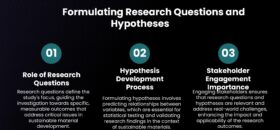

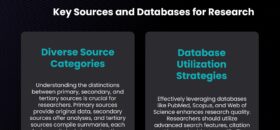


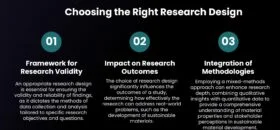


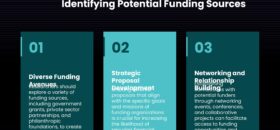







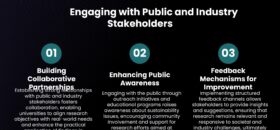







Discover similar templates
UX Design Research Templates
UX Design Research Templates guide creating objectives, employing diverse methodologies, and gathering insights through usability tests and empathy mapping. Visualize findings and iterate for optimal user experiences. [pac_divi_table_of_contents...
Marketing Research
Marketing Research Templates simplify the process of analyzing market trends, customer behavior, and competition. Use these tools to develop actionable insights and create effective marketing strategies with data-driven precision.[ds_image_gallery...
Product Research
Product Research Templates help gather insights through market analysis, competitor evaluation, and customer feedback, enabling better product positioning, technical feasibility, and data-driven strategies for success.[ds_image_gallery...
Summary
When crafting a university research presentation, prioritize academic rigor and detailed data analysis. Start with a robust abstract and integrate a comprehensive literature review to contextualize your research. Clearly outline your theoretical framework and present your methodology meticulously. Use effective data visualization to convey findings, discuss their significance, and prepare for audience questions. Highlight your scholarly contributions and suggest future research avenues to contextualize your work’s ongoing relevance. Engage with your audience and embrace feedback to enhance your presentation.
Outline
- The Importance and Scope of University Research
- Identifying Research Problems and Objectives
- Conducting a Literature Review
- Research Design and Methodology
- Funding and Resources
- Data Collection and Analysis
- Dissemination of Research Findings
- Impact and Applications of Research
- Conclusion
Tips for Crafting a University Research Presentation
A university research presentation distinguishes itself from other pitch decks by its focus on academic rigor, comprehensive data, and scholarly impact. The goal is to effectively communicate the significance, methodology, and findings of the research to an academic audience, which may include peers, advisors, and funding bodies.
Key elements to include:
– A well-defined research question or hypothesis.
– Comprehensive literature review to place your research in context.
– Detailed explanation of methodology and data analysis.
– Clear presentation of results and their implications.
– Discussion on the contribution to the field and future research directions.
Here are additional tips to enhance a university research presentation:
1. Include a Robust Abstract
Start with a concise abstract summarizing the research question, methods, results, and implications.
Make it easy for your audience to grasp the essence of your work quickly.
2. Showcase the Theoretical Framework
Clearly outline the theories or models underpinning your research.
Explain how these frameworks guide your research design and analysis.
3. Present Methodology in Detail
Provide a thorough explanation of your research methods, including study design, data collection, and analysis techniques.
Justify your methodological choices and discuss any limitations and how they were addressed.
4. Use Effective Data Visualization
Ensure that your charts, graphs, and tables are clear and accurately convey your findings.
Use color and design to highlight key data points, but avoid overwhelming the audience with too much information at once.
5. Discuss the Significance and Impact
Explain the broader impact of your research findings on the field.
Discuss practical applications, policy implications, or contributions to theoretical advancements.
6. Include a Comprehensive Literature Review
Highlight the most relevant and up-to-date research related to your study.
Show how your work builds upon existing knowledge and addresses gaps in the literature.
7. Prepare for Critical Questions
Anticipate potential critiques or questions from your audience.
Be prepared with detailed explanations, additional data, or references to address these queries confidently.
8. Engage with Your Audience
Encourage questions and discussions during or after your presentation.
Be open to feedback and show how you can incorporate it into your future work.
9. Demonstrate Scholarly Contribution
Explain how your research contributes new knowledge or insights to your academic field.
Highlight any publications, conference presentations, or collaborations resulting from your research.
10. Conclude with Future Directions
Suggest avenues for future research building on your findings.
Discuss potential studies, experiments, or theoretical developments that could expand on your work.




